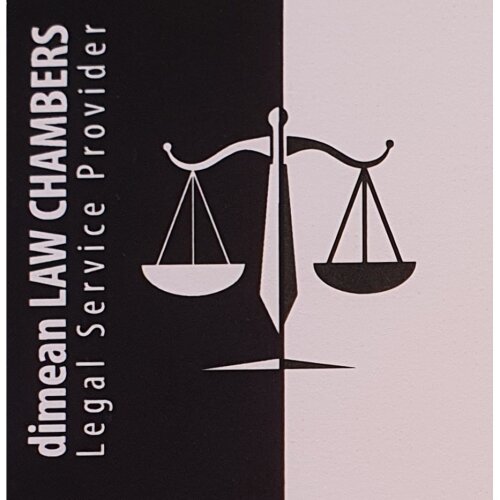Best Divorce & Separation Lawyers in Sri Lanka
Share your needs with us, get contacted by law firms.
Free. Takes 2 min.
Free Guide to Hiring a Family Lawyer
Or refine your search by selecting a city:
List of the best lawyers in Sri Lanka
Sri Lanka Divorce & Separation Legal Questions answered by Lawyers
Browse our 1 legal question about Divorce & Separation in Sri Lanka and read the lawyer answers, or ask your own questions for free.
- Divorce
- When getting divorced, the husband has sold out all the properties belonging to him before finalizing the divorce. Any law like in other countries that the wife to 50% of the properties belongs to the husband as at last date they stayed together?
-
Lawyer answer by SB Law Asia
Our firm (SB Law Asia) is based in Bangkok, Thailand and we would be pleased to assist you if you require legal services in this jurisdiction.
Read full answer
About Divorce & Separation Law in Sri Lanka
Divorce and separation in Sri Lanka are governed by a combination of customary laws and the Marriage Registration Ordinance along with the Legal Aid Commission Act. The process of obtaining a divorce can be complex due to the involvement of multiple legal systems, including the Roman-Dutch law for general cases and Kandyan, Thesawalami, and Muslim laws for specific ethnic groups. Divorce is granted only on specific grounds such as adultery, malicious desertion, or incurable impotence at the time of marriage. Cases are handled by the District Courts, and the proceedings can often involve considerable emotional and financial strain.
Why You May Need a Lawyer
Seeking legal advice from a qualified lawyer is crucial in divorce and separation cases in Sri Lanka due to the legal and logistical complexities involved. A lawyer can assist with:
- Navigating through the complicated legal procedures, especially if your case involves specific ethnic law.
- Providing clarity about your legal rights and obligations, which may vary depending on the applicable personal law.
- Handling contentious issues such as child custody, property division, and alimony.
- Ensuring that all documentation is correctly prepared and filed to expedite the process.
- Representing your interests in potential dispute resolution and court proceedings.
Local Laws Overview
In Sri Lanka, divorce laws are based on the matrimonial statutes and applicable personal laws. Key aspects of the divorce and separation laws include:
- Grounds for Divorce: Adultery, malicious desertion, and incurable impotence are the primary legally recognized grounds for divorce. Proof is required, and these can only be pursued within the framework of matrimonial wrongdoing.
- Customary Law: Different customary laws apply to different ethnic groups (Sinhala, Tamil, and Muslim) and incorporate specific rules pertaining to marriage and divorce.
- Child Custody: Determined based on the best interest of the child, custody decisions can be complex and often require legal intervention.
- Alimony and Maintenance: Courts have the discretion to award alimony or maintenance to a spouse or children as deemed appropriate based on financial status.
- Property Division: Sri Lankan law does not presume equal division, and property settlement is often negotiated with legal assistance.
Frequently Asked Questions
What are the grounds for divorce in Sri Lanka?
The grounds for divorce are adultery, malicious desertion, and incurable impotence. Specific ethnic laws may have additional provisions.
Can divorces be settled out of court?
While out-of-court settlements are possible for ancillary matters such as property and custody, obtaining a formal divorce requires a court decree based on the prescribed grounds.
How is child custody decided?
Custody decisions are based on the child's best interests, considering factors such as age, parental capability, and living conditions.
What is the process for filing a divorce?
The process involves filing a petition in the relevant District Court, followed by court hearings to evaluate the grounds and circumstances surrounding the divorce.
How long does it take to get a divorce in Sri Lanka?
The duration varies; contested divorces can take several years, while uncontested divorces may be resolved more quickly depending on court schedules and complexities.
Is alimony awarded in all divorce cases?
No, alimony is considered on a case-by-case basis, factoring in the financial needs of the spouse requesting support and the other spouse's ability to pay.
Will I lose custody if I am the one filing for divorce?
Filing for divorce does not inherently affect custody, which is determined based on the child's best interests, not the grounds for divorce.
Do I need a lawyer for divorce proceedings?
While not legally required, having a lawyer is highly recommended due to the legal complexities and potential for contested issues.
Can I remarry immediately after a divorce?
Yes, once a decree absolute is granted, you are free to remarry. However, ensure that the divorce process is fully complete before proceeding.
What happens if my spouse does not agree to the divorce?
If a spouse contests the divorce, the matter will proceed to trial, and the court will decide based on the presented evidence and legal grounds.
Additional Resources
For further information and support, consider the following resources:
- Legal Aid Commission of Sri Lanka: Provides free legal advice and representation depending on eligibility.
- Women in Need (WIN): Offers support services and protection for women, which can be crucial during divorce proceedings.
- Ministry of Women and Child Affairs: Provides resources for child custody-related issues and family support services.
- Family Court Services: Provides mediation and counseling services that can assist in resolving family disputes amicably.
Next Steps
If you need legal assistance in matters of divorce and separation in Sri Lanka, consider taking the following steps:
- Consult a Lawyer: Enquire about lawyers specializing in family law for tailored advice. Book a consultation to understand your rights and the best course of action.
- Gather Documentation: Collect and organize all relevant paperwork, such as marriage certificates, financial records, and evidence for your grounds for divorce.
- Consider Mediation: Explore mediation to amicably resolve disputes, particularly if children are involved.
- File a Petition: Work with your lawyer to file a divorce petition in the appropriate District Court.
- Prepare for Court: Be prepared to attend court hearings, and follow your lawyer's guidance to present your case effectively.
Lawzana helps you find the best lawyers and law firms in Sri Lanka through a curated and pre-screened list of qualified legal professionals. Our platform offers rankings and detailed profiles of attorneys and law firms, allowing you to compare based on practice areas, including Divorce & Separation, experience, and client feedback.
Each profile includes a description of the firm's areas of practice, client reviews, team members and partners, year of establishment, spoken languages, office locations, contact information, social media presence, and any published articles or resources. Most firms on our platform speak English and are experienced in both local and international legal matters.
Get a quote from top-rated law firms in Sri Lanka — quickly, securely, and without unnecessary hassle.
Disclaimer:
The information provided on this page is for general informational purposes only and does not constitute legal advice. While we strive to ensure the accuracy and relevance of the content, legal information may change over time, and interpretations of the law can vary. You should always consult with a qualified legal professional for advice specific to your situation.
We disclaim all liability for actions taken or not taken based on the content of this page. If you believe any information is incorrect or outdated, please contact us, and we will review and update it where appropriate.
Browse divorce & separation law firms by city in Sri Lanka
Refine your search by selecting a city.

















